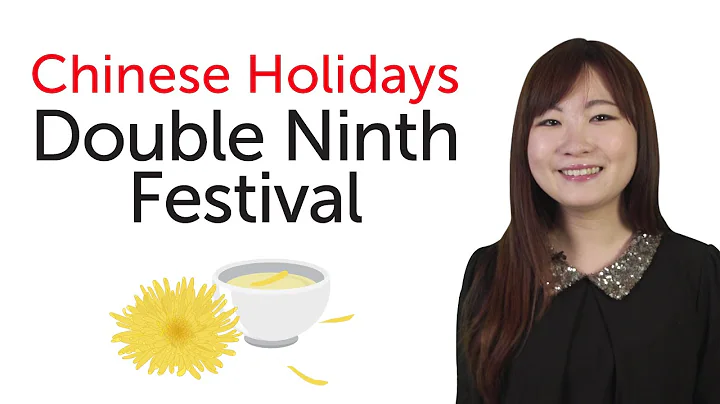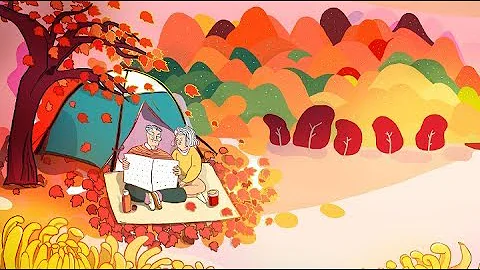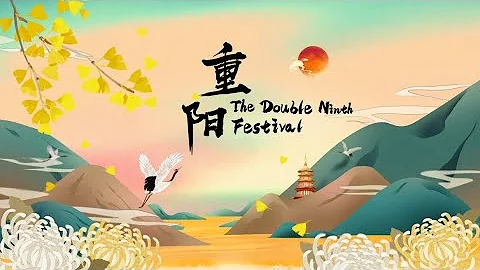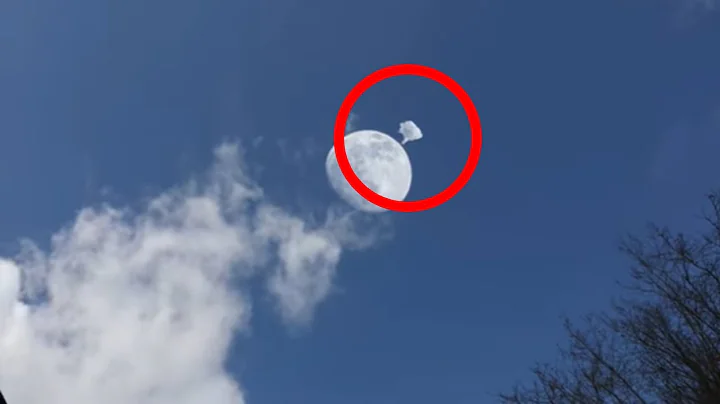
Chrysanthemum wine
"What are the customs of the Double Ninth Festival?" "When will the Double Ninth Festival become an official festival?" "Why is the Double Ninth Festival set on the Double Ninth Festival?"... Every Double Ninth Festival, now it is the Double Ninth Festival. October 14th is the Double Ninth Festival. When you climb high and enjoy the chrysanthemums, have you ever thought about these issues? The Double Ninth Festival is a traditional festival with a long history in my country, also known as the "Double Ninth Festival", "Climbing Festival", "Chrysanthemum Festival", "Cornus Festival", etc. According to research, Double Ninth Festival climbing originated from mountain worship, and banquets originated from celebrating the harvest. Therefore, since ancient times, society has widely formed the practice of climbing high to overlook the distance, autumn outings, chanting, wearing dogwoods , and relatives and friends appreciating chrysanthemums and drinking chrysanthemums. Customs such as drinking wine and eating Double Ninth Festival cakes.
一
The Chinese have noticed the changes in the stars very early and summed up the laws of the movement of celestial bodies. The ancient stargazing culture has been prosperous for a long time. The main purpose is to serve agricultural production and pray for longevity and official career. The ancients observed that the constellation Mars retreated in late autumn and September, and they felt inexplicable panic. It turns out that the ancients have always used the appearance of the Great Mars Constellation to determine production and life. Its retreat has caused the ancients to lose the coordinates of time. For this reason, people have to hold sacrificial activities to see off the Great Mars Constellation.
With the invention of standard and the emergence of the calendar, the ancients had a new understanding of seasons, changes in solar terms, and time, and no longer relied solely on changes in the stars. As a result, the ritual of offering sacrifices to fire in September declined and was only retained in the ancient Huaihe River. In some areas south of the Yangtze River on both sides of the water, people there still have the custom of worshiping stoves on the Double Ninth Festival, mainly to the household fire gods. This is a trace left by the ancient September sacrifices to the "fire".
The name of the Double Ninth Festival only came into existence after the Han Dynasty, but during the Spring and Autumn Period and the Warring States Period, princes and nobles had noticed the extraordinary day of "Chongjiu", which coincided with the autumn harvest, and took it as an important day. The festival began to be celebrated with banquets, songs and dances in the palace, and this custom has continued since then.
In the Han Dynasty, the customs of the Double Ninth Festival spread from the court to the people. It is said that after the concubine of Emperor Gaozu of Han Dynasty Liu Bang, Mrs. Qi, was murdered by Empress Lu, one of her maids named Jia Peilan was expelled from the palace and married to a commoner. Jia told people the story of the palace: "On September 9th, wearing dogwood, eating bait, and drinking chrysanthemum wine, it made people live longer." This matter is recorded in "Xijing Miscellaneous Notes". This statement is consistent with Han It is consistent with the desire of high-ranking officials and nobles to take grass jelly and pursue immortality.
The ninth day of the ninth lunar month of the lunar calendar is the ninth day of the ninth lunar month. In Confucian culture , "nine" is the "extreme number", which refers to the height of the sky as "nine layers". "Nine" is the old Yang, which is the number of positive poles. The two positive pole numbers overlap together. Therefore, the Double Ninth Festival is also called the "Double Ninth Festival". Nine and nine are unified, one yuan is restored, and everything is renewed. Therefore, the ancients believed that the Double Ninth Festival is a day worth celebrating. Auspicious day.
二
In ancient times, the Double Ninth Festival had a special meaning of avoiding epidemics. Wu Junzhi, a native of Liang Dynasty in the Southern Dynasties, recorded in " Continued Qi Xie Ji " that a man named Huan Jing in Runan County in the Eastern Han Dynasty suffered from a plague in his hometown. Unfortunately, Huan Jing's parents both died of the epidemic; Huan Jing left home. He went to the Southeast Mountain to worship the immortal Fei Changfang to learn skills, and the immortal taught him swordsmanship. On the day of success, Fei Changfang said to him: "The plague will come back on September 9th. You can go back and kill it." Before leaving, he gave him a bag of dogwood and a pot of chrysanthemum wine, and asked Huan Jing told the elders in his hometown to climb high to avoid disaster. On the ninth day of September, he took his wife, children, and fellow villagers to a high mountain. He gave everyone dogwood to wear and chrysanthemum wine to drink. When everything was ready, Huan Jing went down the mountain to fight to the death with the plague demon, killing it in one fell swoop. Since then, people on both sides of the Ru River have spread the story of climbing to a high place on September 9th to avoid disaster and killing the plague demon with the Huanjing Sword.

Corus officinalis
One of the ancient ways to avoid epidemics is to plant dogwood. Cornus officinalis has a strong smell and has the effect of repelling insects. The ancients believed that planting Cornus officinalis during the Double Ninth Festival can eliminate diseases and protect the body. To this day, the traditional Nanyang people will climb high on the Double Ninth Festival, pick dogwood, insert it on the door or hang it on their chest, or make it into a sachet and wear it on their body. Wang Wei of the Tang Dynasty once wrote a poem "Recalling Shandong Brothers on September 9th", which depicts a real scene of planting dogwood:
I am a stranger in a foreign land, and I miss my relatives even more during the festival.
I know from afar that my brothers have climbed to a high place, and there is one less person planted with dogwood trees.
During the Double Ninth Festival, the autumn air is crisp and clear, which is a good time to climb up and enjoy the distant views. It was also from that time that the custom of climbing on the Double Ninth Festival began.
Ming Dynasty The third king of Nanyang Tang Dynasty Zhu Qiongxing also had poems about autumn outing " Wollongong ":
The water flows eastward into the vast distance, and a bay wraps around Wollongong.
The maple forest in the plains is red with frost, and the chrysanthemums are yellow in the sunlight.
The wise strategy did not respond to the wind and music, but the hero finally subdued Guan Zhang.
There is no need to talk about success or failure when facing the wind. The second sign is loyalty to the liver and will last forever.
三
Appreciating chrysanthemums on the Double Ninth Festival has been a traditional custom in my country since ancient times. The chrysanthemums are in full bloom at this time, which is a good time of year to enjoy chrysanthemums. The ancients loved silence and how pleasant it was to appreciate the beauty of life among the chrysanthemums. Tao Yuanming, a scholar of the Jin Dynasty, lived in seclusion in the mountains and forests with chrysanthemums. He loved and was crazy about chrysanthemums, as evidenced by poems:
Chrysanthemums know my heart, they bloom on September 9th,
Guests know my wishes, and they come together on the Double Ninth Festival.
He said in the preface to the poem "Nine Days of Leisure": "I am living leisurely, and I love the name of Jiu. The garden is filled with autumn chrysanthemums, and I hold the mash for a long time, serving Jiuhua in the air, and placing my heart in words." It is mentioned here at the same time. Seeing chrysanthemums and wine proves that the custom of appreciating chrysanthemums and drinking wine already existed in the Wei and Jin Dynasties. Chrysanthemum has high edible and medicinal value. The ancients used chrysanthemum to make wine and it became fashionable to entertain guests. One of the most vivid passages comes from The Poems of a Prodigy compiled by Wang Zhu of the Northern Song Dynasty:
Visiting the green grassland in the spring, admiring the green lotus pond in the summer, drinking yellow flower wine in the autumn, and reciting poems on the white snow in the winter.
The yellow flower the poet talked about is the yellow chrysanthemum during the Double Ninth Festival.
The Double Ninth Festival has the vision of longevity. The Double Ninth Festival is homophonic with "Jiujiu". Nine is the largest number among numbers, so it has the meaning of longevity and longevity. September is the season when chrysanthemums bloom, so there is also a saying of "Chrysanthemum Longevity". Poet Xie Qian of the Ming Dynasty has a poem "Inscribed on the Chrysanthemums and Longevity of Yu and Chen Chushi·Part 1":
On the occasion of the Double Ninth Festival when the ancient rare flower was born, I picked the chrysanthemums from the east fence to make them fragrant.
I want to see the guests in the Juxing Hall, and the longevity wine glasses will be filled with the fragrance of autumn.

Tao Yuanming loves chrysanthemum blue and white porcelain jar
四
Legend has it that eating cakes on the Double Ninth Festival can ward off disasters and diseases, and wearing dogwood when climbing high can ward off evil. In addition to climbing mountains, planting dogwoods, admiring chrysanthemums, and drinking chrysanthemum wine, the Double Ninth Festival also includes activities such as drinking banquets and eating Double Ninth cakes, which revolve around reunion, respecting the elderly and wishing longevity. "Records of the Years of Jingchu" says: "On September 9th, all the people gathered together to have a picnic." Du Gongzhan noted: "It is unknown when the banquet on September 9th began, but it lasted from the end of the Song Dynasty to the end of the Song Dynasty. "Change." Seeking longevity and feasting have become the theme of the Double Ninth Festival.
It was not until the Tang Dynasty that the Double Ninth Festival was officially designated as a holiday. From then on, the court and the people celebrated the Double Ninth Festival together and carried out various activities during the festival.
In the Song Dynasty, the Double Ninth Festival activities became more abundant and lively. " Tokyo Menghua Lu " records the grand occasion of the Double Ninth Festival in Bianliang City in the Northern Song Dynasty. "Wulin Old Stories" also records that the court of the Southern Song Dynasty "made nine heavy arrangements on the eighth day" in preparation for the grand entertainment the next day.
In the Ming Dynasty, on the eve of the Double Ninth Festival, the concubines and eunuchs in the palace started various celebration activities from the first day of the Lunar New Year. On the ninth day of the Double Ninth Festival, the emperor would personally go to the Long Live Mountain to enjoy the sights, so as to refresh his autumn aspirations. The princes of the Tang Palace in Nanyang were not willing to be lonely. They rode horses and boats to the countryside to climb the Jiujia Gushan in Nanyang for a distant view, while the concubines who stayed at home played and admired chrysanthemums on the palace mountain in Fuyuan.
Chinese people have a good tradition of respecting, respecting and loving the elderly since ancient times. In 1989, our country designated the annual Double Ninth Festival as "Old People's Day" and "Respect for the Aged Day". In order to protect the legitimate rights and interests of the elderly, develop the cause of aging healthily, and promote the traditional virtues of the Chinese nation, the "Law on the Protection of the Rights and Interests of the Elderly" implemented on July 1, 2013 stipulates that the Double Ninth Festival is my country's "Senior Citizen's Day" every year. This year's Double Ninth Festival is the ninth statutory "Senior Citizen's Day" in my country. Our city will carry out activities with the theme of respecting the elderly, respecting the elderly, loving the elderly, helping the elderly and the Double Ninth Festival.With the establishment of new socialist trends and the implementation of various policies and measures to care for and help the elderly, the elderly's sense of gain, happiness, and security will be further enhanced. (Cui Jianping)
Editor: Wang Mian Reviewer: Huang Xing
![Winter Solstice 冬至 [Traditional Chinese Festival] - Do You Know What It Means and It Is About? - DayDayNews](https://i.ytimg.com/vi/_eiKmDr_YDk/hqdefault.jpg?sqp=-oaymwEcCOADEI4CSFXyq4qpAw4IARUAAIhCGAFwAcABBg==&rs=AOn4CLAMjHrZu4ACIrfgzgT6qW9BXrN6tQ)
![Winter Solstice 冬至 [Traditional Chinese Festival] - Do You Know What It Means and It Is About? - DayDayNews](https://cdn-dd.daydaynews.cc/img/play.svg)



















